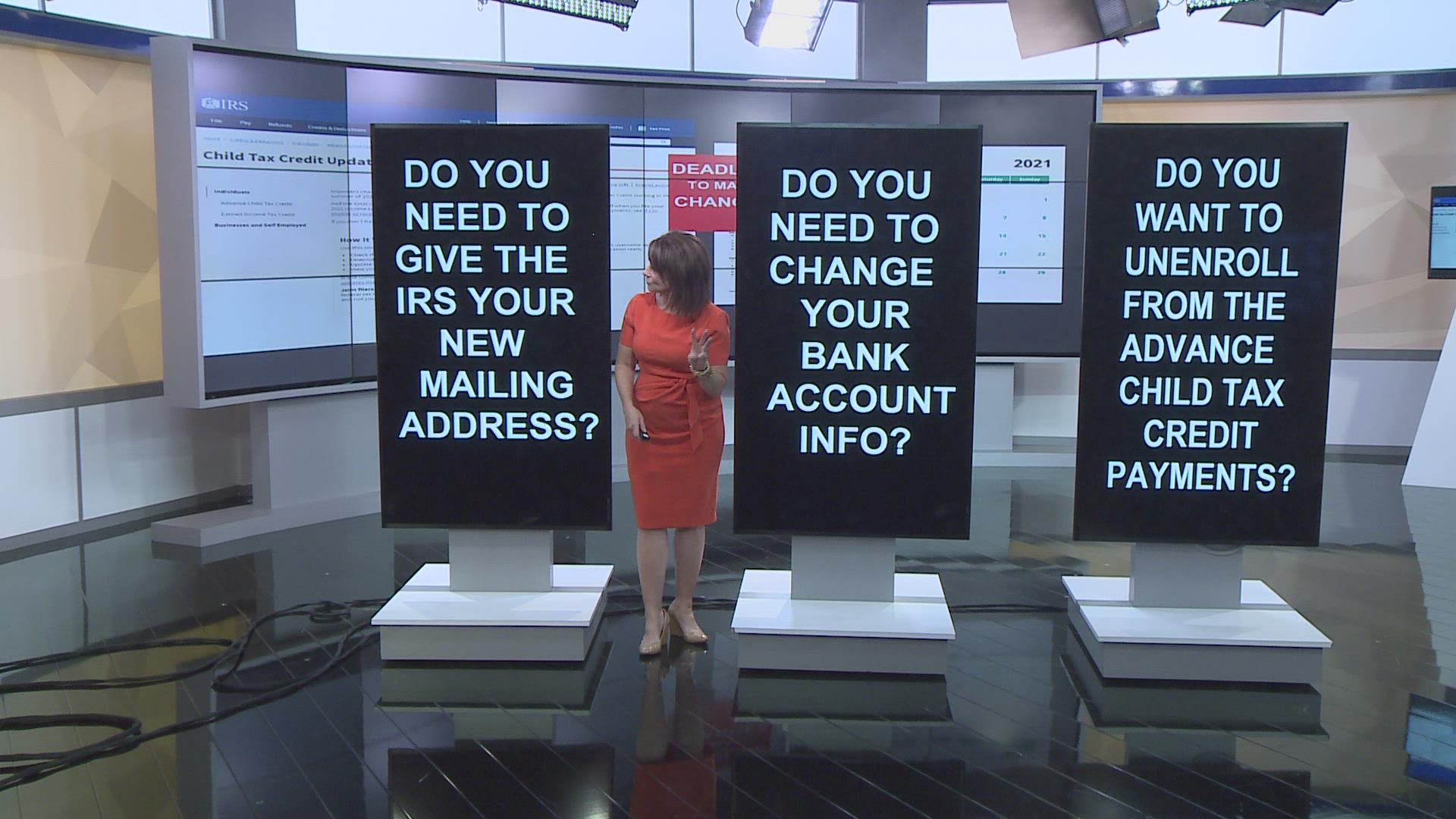WASHINGTON — A deadline is coming up for parents who are receiving the new advance monthly child tax credit. It affects them in a couple of different ways.
The credit is $3,600 annually for children under age 6 and $3,000 for children ages 6 to 17. Eligible families will receive $300 monthly for each child under 6 and $250 per older child. It was part of the American Rescue Plan passed in March and the first payments went out in July and August.
Those who are currently getting the monthly payment have until 11:59 p.m. ET on Monday, Aug. 30, to opt-out and get the money at tax time instead. Otherwise, they will get the next payment on Sept. 15 or shortly thereafter. Opting-out can be done at the child tax credit update portal on the IRS website.
If the payment is going to a couple that files taxes jointly, both parents must opt-out. If only one unenrolls, then they will receive half of the monthly payment on the 15th.
The IRS has also introduced a feature to update the recipient's mailing address. It can be found at the same link. However, the vast majority of payments are being delivered via direct deposit. And on that note, the portal can be used to update bank account information.
Any changes made before the deadline will apply to payments for the rest of the year, including the September payment. Changes made after will take effect starting with the October payment.
In the past, eligible families got this credit after filing their taxes — either as a lump-sum payment or a credit against taxes owed. But now six months of payments are being advanced monthly through the end of the year. A recipient receives the second half when they file their taxes in 2022.
Advocates argue the monthly payments make more sense for low-income families, but it is also a benefit to those in many middle-income households.
The benefits begin to phase out at incomes of $75,000 for individuals, $112,500 for heads of household and $150,000 for married couples. Families with incomes up to $200,000 for individuals and $400,000 for married couples can still receive the previous $2,000 credit.
If all the money goes out, the expectation is that could significantly reduce poverty — with one study estimating it could cut child poverty by 45%.
The payments are also a test case of sorts. President Joe Biden ultimately would like to make them permanent — and the impact they have could go a long way to shaping that debate this year as the House and Senate consider the $3.5 trillion budget plan.
The Associated Press contributed to this report.

